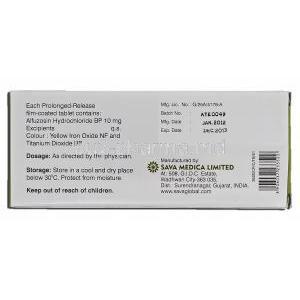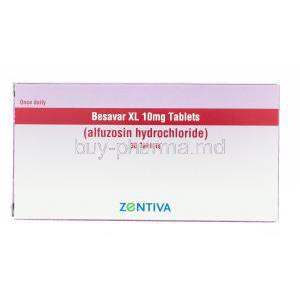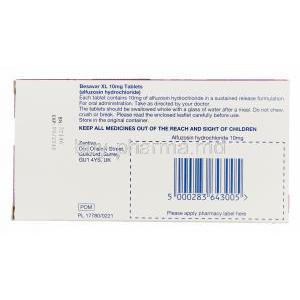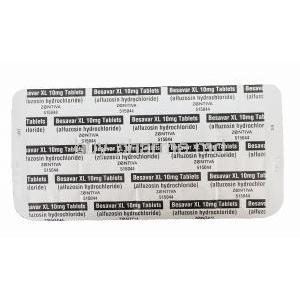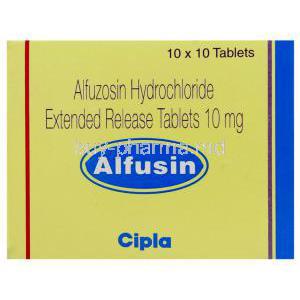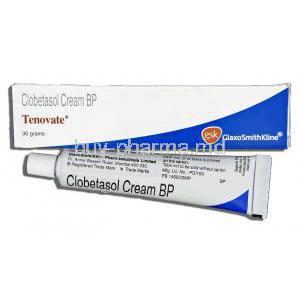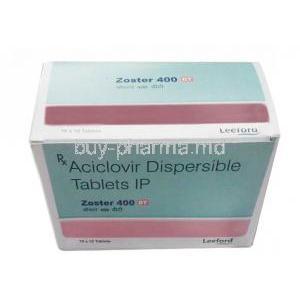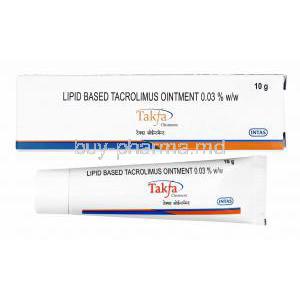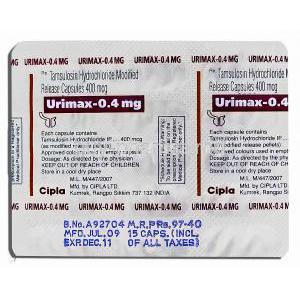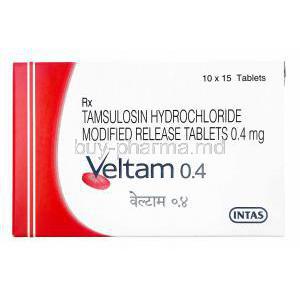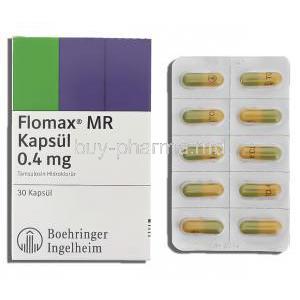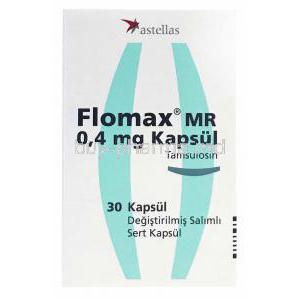Alfuzosin
- I. Introduction
- II. Uses of Alfuzosin
- III. Off-label Uses
- IV. How Alfuzosin Works
- V. Dosage and Administration
- VI. Composition
- VII. Storage
- VIII. Interactions
- IX. Side Effects
- X. Warning and Contraindication
- XI. Careful Administration
- XII. Important Precautions
- XIII. Administration Guidelines for Special Populations
- XIV. Overdosage
- XV. Handling Precautions
I. Introduction
Alfuzosin plays a role in the range of medications used to treat various urological conditions. While it has mainly been known for its effectiveness in managing prostatic hyperplasia (BPH) and associated lower urinary tract symptoms (LUTS), the journey of this drug from its creation to its widespread use demonstrates its efficacy and versatility. Regarding history, Alfuzosin was carefully developed in laboratories to address challenges in urological pharmacology. Over the years, it has received recognition from the community for its precise therapeutic effects and minimal side effects.
II. Uses of Alfuzosin
The significance of understanding the reasons why Alfuzosin is prescribed cannot be underestimated. While it has a range of uses, two primary reasons stand out; Benign Prostatic Hyperplasia (BPH), which is characterized by the enlargement of the prostate gland and can cause difficulties in urination, and Lower Urinary Tract Symptoms (LUTS), which include frequent urination, nighttime urination (nocturia) and urgency. The way Alfuzosin works is quite fascinating. Targeting receptors initiates a series of biochemical interactions that alleviate symptoms, ultimately improving the patient's quality of life.
References:
1: Alfuzosin HCL ER - Uses, Side Effects, and More - WebMD 2: Alfuzosin: Uses, Interactions, Mechanism of Action | DrugBank Online 3: Alfuzosin: Side Effects, Dosage, Uses and More - Healthline 4: Alfuzosin - Wikipedia 5: Alfuzosin: MedlinePlus Drug Information
III. Off-label Uses
Apart from its uses, Alfuzosin has been tested for various off-label purposes. Although these are not the indications for the drug, several doctors have reported positive results when using it in these unconventional applications. Some documented off-label uses include its effectiveness in treating hypertension. Numerous studies indicate that monitoring Alfuzosin can lead to favorable patient outcomes even in conditions it was not initially intended to address.
References:
1: Alpha-blockers: Types, Uses, and Side Effects - Cleveland Clinic 2: Alfuzosin Uses, Side Effects & Warnings - Drugs.com 3: Alfuzosin: Side Effects, Dosage, Uses and More - Healthline
IV. How Alfuzosin Works
When we delve deeper into how Alfuzosin works in the body, we find it belongs to a class of drugs called alpha-blockers. Its main action is inhibiting the alpha-1 receptors, primarily located in the bladder, neck, and prostate. By targeting these receptors, Alfuzosin helps relax the muscles in these areas. This ultimately makes urination easier. Provides relief from symptoms for patients. It's important to note that muscle relaxation plays a role in its therapeutic benefits.
V. Dosage and Administration
The key to treatment with Alfuzosin is finding the correct dosage and following a systematic approach. The initial dose is usually determined based on the severity of the condition and individual patient factors. To ensure results and minimize any potential side effects, it's essential to gradually adjust the dosage according to how the patient responds. Alfuzosin is primarily taken orally in tablet form.
VI. Composition
Upon delving into the composition of Alfuzosin, one can uncover many valuable insights regarding its therapeutic potential. Alfuzosins chemical structure, derived from quinazoline, plays a role in determining its therapeutic effects and interaction with alpha receptors. However, it's important to note that the drug's efficacy extends beyond its ingredient. Inactive components also play a role in improving the drug's bioavailability, stability, and patient tolerance. These inactive ingredients encompass a range of substances, such as binders, fillers, and agents that facilitate controlled release. Speaking of release mechanisms, there are formulations available for Alfuzosin, with the extended-release version being particularly favored by healthcare professionals due to its ability to provide consistent therapeutic effects over an extended duration.

VII. Storage
It is crucial to highlight the importance of storing medications like Alfuzosin under conditions. Maintaining the environment is essential for preserving the effectiveness and safety of the drug. Here are some key points to consider;
1. Storage conditions; Alfuzosin should be kept within a temperature range of 20°C to 25°C away from sunlight and moisture.
2. Shelf life considerations; While the medication remains effective for a period, it is advisable to follow the expiration date mentioned on the packaging. This indicates its stability over time.
3. Tips for potency preservation; To ensure potency, store the medication in its original container, tightly seal the lid and keep it in a cool and dry place.
By adhering to these guidelines, you can help maintain the potency and efficacy of Alfuzosin over time.
VIII. Interactions
Interactions can influence how Alfuzosin works, reducing its effectiveness or increasing unwanted effects. Having an understanding of these interactions is crucial for healthcare professionals. Some medications commonly interacting with Alfuzosin include antihypertensives, antifungals like ketoconazole, and erectile dysfunction medications. These drugs can affect how Alfuzosin is processed in the body and how it affects the body. Regarding food and alcohol interactions, while food may not impact how Alfuzosin works, consuming alcohol can worsen some of its side effects, particularly dizziness and low blood pressure. It's also important to note that Alfuzosin can potentially affect the levels of liver enzymes. This may lead to changes in how the liver metabolizes other drugs. Understanding these factors is essential for healthcare professionals to ensure the effective use of Alfuzosin in clinical practice.
IX. Side Effects
No medication, no matter how effective it may be, is without its share of side effects. During its use as a treatment, Alfuzosin can cause specific physiological disruptions in patients. Common Side Effects;
1. Dizziness; This may occur as a result of the medication's effects.
2. Fatigue; Some patients may experience feelings of tiredness.
3. Headache; Occasionally, patients may experience headaches.
4. Others; Additional possible side effects include palpitations, nasal congestion, and gastrointestinal disturbances. Common but more serious side effects; Priapism (a prolonged and painful erection) and severe hypotension are rare occurrences but require immediate medical attention.
X. Warning and Contraindication
While Alfuzosin is commonly used in treatments, there are situations where its use should be avoided or approached with extra caution. Here are some instances; 1. Patients who have a history of liver problems or are currently taking strong medications like ritonavir that affect the CYP3A4 enzyme should not take Alfuzosin. 2. For patients with kidney problems, it is essential to adjust the dosage of Alfuzosin and closely monitor their condition. 3. It is not recommended to use Alfuzosin with other alpha blockers or medications that can potentially prolong the QT interval. Please consult your healthcare provider for information on these contraindications and potential risks of using Alfuzosin in specific health conditions.
XI. Careful Administration
When dealing with patients with medical conditions or specific health issues, taking a careful and customized approach to administering Alfuzosin is crucial. It is essential to consider factors for patients with particular health conditions. For example, individuals who have experienced hypotension require close monitoring. Throughout treatment it is recommended to check blood pressure, assess liver enzyme levels and evaluate renal function to achieve the best therapeutic results.
XII. Important Precautions
Starting Alfuzosin treatment is not something that should be done without consideration. Before and during the treatment, there are precautions to ensure its effectiveness and safety. Before starting the therapy, gathering a medical history, mainly focusing on cardiovascular conditions, is essential. This information will help guide the process and mitigate potential risks. During treatment, if any surgical procedures are planned for cataract surgery it is crucial to inform the surgeon about the patient's Alfuzosin therapy. This is because there is a risk of Intraoperative Floppy Iris Syndrome associated with this medication. Overall taking these pre-treatment and treatment precautions helps strengthen the efficacy and safety of Alfuzosin therapy.
XIII. Administration Guidelines for Special Populations
Some specific groups of people with physiological characteristics may require modified guidelines for administering Alfuzosin. For the Elderly; Considerations related to age; Due to changes in how their bodies process and eliminate drugs, the elderly might be more susceptible to experiencing effects. Adjustments in dosage or monitoring; It could be prudent to start with a dose and closely monitor this demographic. For Pregnant Women and Nursing Mothers, human studies on fetal impact; While there is not enough comprehensive research on humans, studies conducted on animals have not shown direct harm to the fetus. However, if the potential benefits outweigh the risks, Alfuzosin should only be used during pregnancy. Recommendations for breastfeeding; It is currently unknown if Alfuzosin is excreted in human breast milk. A decision should be made considering whether to stop nursing or discontinue using the drug, considering its importance to the mother. For Children; Guidelines to Age; Alfuzosin is generally not recommended for pediatric patients. Safety and effectiveness in patients; Current literature does not provide conclusive evidence regarding its safety and effectiveness in this age group.

XIV. Overdosage
Overdosing on Alfuzosin, although rare, is a concern during the treatment process. It is essential to recognize the visible signs take immediate action, and understand the potential long-term effects. Here are the symptoms that may occur in case of an Alfuzosin overdose; 1. Acute hypotension; A drop in blood pressure. 2. Tachycardia; Rapid heart rate often caused by blood pressure. 3. Palpitations; sometimes irregular heartbeats. 4. Cognitive disturbances; Feeling dizzy, confused, or even losing consciousness sometimes. In case of an overdose, immediate medical attention is crucial. The first steps include ensuring the airways for the patient, closely monitoring vital signs and administering intravenous fluids to stabilize blood pressure. If the overdose happened within two hours, giving activated charcoal might be considered to minimize absorption. Persistent low blood pressure may require monitoring and symptomatic treatment regarding long-term consequences and management. Patients experiencing palpitations or irregular heart rhythms after an overdose should also undergo cardiac assessments.
XV. Handling Precautions
It is crucial to carefully handle and dispense Alfuzosin to enhance its effectiveness as a treatment and minimize unintended complications. Both healthcare professionals and patients should be informed about these precautions. Precautions during dispensing; Verify prescription details; Ensure the dose, frequency, and form of Alfuzosin align with the doctor's instructions. Use childproof packaging; This helps prevent ingestion by children. Ensure labeling; Clear instructions, expiration date, and possible side effects should be clearly stated. Handling in healthcare settings; Storage; Keep Alfuzosin separate from medications that look or sound similar to avoid dispensing errors. Maintain hygiene; Regularly sanitize hands before and after dispensing to prevent contamination. Consider using gloves, Especially if there is a risk of direct skin contact with the medication. Patient education on use; It is essential to educate patients about following the prescribed dosage, informing them about potential side effects and advising them to store the medication safely out of reach of children in a cool and dry place.



